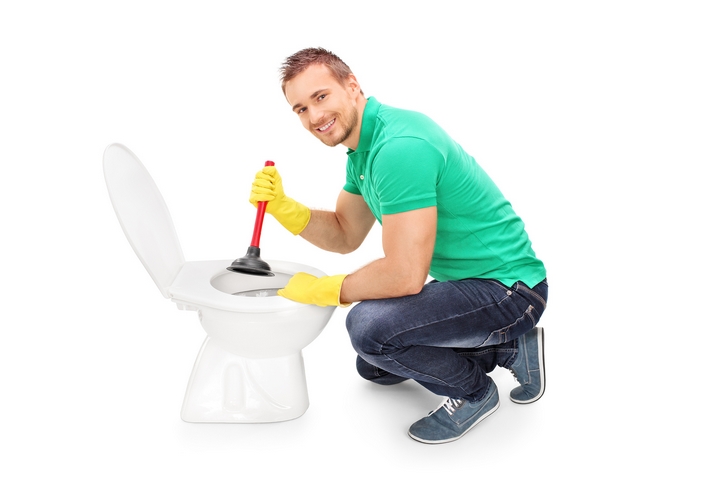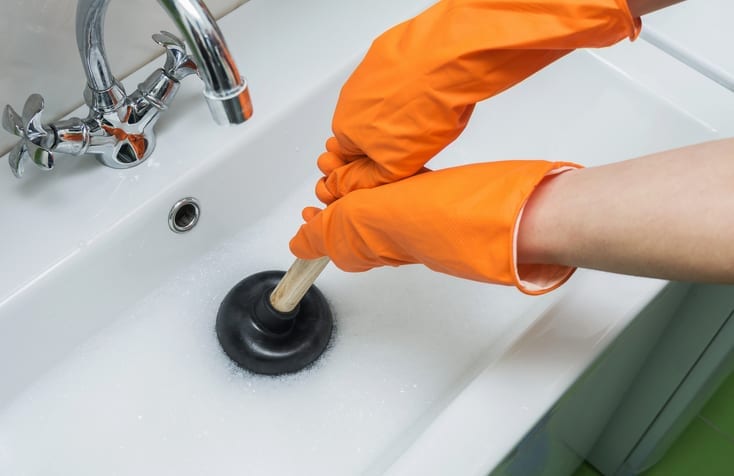Effective Plungers and Drain Cleaners: Crucial Advice
Get Your Estimate NowEach person seems to have their unique piece of advice with regards to Here's How to Correctly Use a Toilet Plunger.

Intro
Correct maintenance of household drains pipes is important for preventing clogs and ensuring smooth water circulation. Among the secret tools in every house owner's toolkit is the bettor, together with different drain cleaners made to take on persistent obstructions efficiently. This article discovers just how to utilize bettors and drainpipe cleansers successfully to maintain your drains moving easily.
Section 1: Comprehending Plungers
Kinds of Plungers
There are numerous kinds of plungers available, each developed for various types of drains pipes and blocks. One of the most typical kinds consist of mug bettors, flange bettors, and accordion bettors.
Just How Plungers Job
Plungers deal with the concept of producing stress and suction to displace clogs. When properly applied over a drain, they produce a vacuum that can pull out particles or break up blockages.
Selecting the Right Bettor
Picking the appropriate plunger depends on the sort of drain and the nature of the clog. Mug plungers are perfect for sinks and tubs, while flange bettors are better matched for commodes because of their layout.
Typical Blunders with Plungers
Preventing these errors guarantees reliable plunging: inappropriate seal around the drainpipe, insufficient force, and not clearing surrounding debris.
Section 2: Using Plungers Successfully
Prep work
Before diving, make sure the bettor covers the drain completely and forms a tight seal. Clear any type of visible particles around the drain opening.
Technique
Start with mild plunging activities to develop suction. Increase stress slowly, utilizing a consistent rhythm. Repeat as required up until the drain removes.
Troubleshooting Tips
If plunging does not work, try readjusting the seal, applying oil jelly for a better seal, or utilizing a various sort of plunger.
Section 3: Comprehending Drain Cleaners
Sorts Of Drain Cleaners
Drain cleaners can be chemical or enzymatic. Chemical cleaners make use of solid chemicals to dissolve clogs, while enzymatic cleaners use all-natural enzymes to break down raw material.
Exactly How Drainpipe Cleaners Work
Chemical cleansers react with obstructions to dissolve them, while enzymatic cleaners break down organic materials like hair and grease without damaging pipelines.
Safety and security Factors to consider
Constantly put on handwear covers and eye protection when utilizing chemical drain cleansers. Make certain ample air flow and comply with manufacturer directions very carefully.
Eco-Friendly Alternatives
Think about making use of vinegar and baking soft drink or enzyme-based cleaners for environmentally friendly alternatives that are more secure for pipelines and the environment.
Area 4: Using Drainpipe Cleaning Company Efficiently
Application Strategies
Pour chemical cleansers directly into the drainpipe opening. Enable them to work for the suggested time prior to flushing with warm water. Enzymatic cleansers ought to rest overnight.
Safety measures
Avoid blending different kinds of cleansers, as this can generate toxic fumes. Never ever use chemical cleaners combined with a plunger, as splashing can happen.
Taking Care Of Persistent Clogs
For relentless clogs, consider using a plumbing serpent or calling a professional plumbing to avoid damages to pipes.
Final thought
To conclude, comprehending just how to make use of plungers and drain cleaners successfully is crucial for maintaining healthy plumbing systems. By picking the right devices and strategies, house owners can take on minor obstructions and prevent significant plumbing problems down the line.
How To Properly Use A Plumbing Snake To Clear Drains
When any drain clogs in our home arise, we tend to gravitate toward the plunger and little else. In cases where the plunger and its vacuum-created pressure are not able to clear clogs, many immediately move to harmful chemicals or simply call their plumber to fix the issue.
we’re happy to help with all drain cleaning needs and concerns. This includes informing you on a few other home remedies you may have at your disposal for minor to moderate clogs, one of which is the use of a plumbing snake. Many people have never used one of these before – let’s go over the steps to take when your drain clogs and you have a plumbing snake available.
Attempt Plunger Use
The first step here, as we noted above, should indeed be to grab your plunger when you notice a drain clog and attempt to resolve it this way. If you’re unsure how to use a particular type of plunger, our plumbers can answer any questions you have. If this doesn’t do the trick, however, you move on to the snake.
Locate And Prepare Snake
A plumbing snake is a metal or plastic device that’s generally about a quarter of an inch thick. It’s design with significant extensions, meant to reach down into your clogged drain and push the clog out. Snakes also contain drain augers that will latch onto and push stubborn blockages.
If your plunger doesn’t clear a clog, locate your snake and bring it to the drain in question. We also recommend keeping a bucket nearby to collect the clog once you pull it out, plus we’d advise wearing goggles and possibly protective gloves.
Feed Snake
Once you’re ready to go, feed the snake slowly down the drain, using the crank device it comes with to keep it moving until it finds the clog. Once this happens, much of the clog will be latched onto the coil so you can pull it out, while the rest will simply break up and flow downward.
Detach Debris
Remove the snake slowly from the drain, and once you’ve done so, pick off any debris that’s stuck to the coil. This is another area where wearing gloves is a must.
Flush Drain
Finally, take a few minutes to ensure the snake has done its job correctly. If you’ve been using it on a toilet, flush the toilet a couple times and make sure everything flows well. If you’ve used it on a different drain, flush it with some room temperature water.
https://www.mybuddytheplumber.com/blog/how-to-properly-use-a-plumbing-snake-to-clear-drains/

Application Strategies
Pour chemical cleansers directly into the drainpipe opening. Enable them to work for the suggested time prior to flushing with warm water. Enzymatic cleansers ought to rest overnight.
Safety measures
Avoid blending different kinds of cleansers, as this can generate toxic fumes. Never ever use chemical cleaners combined with a plunger, as splashing can happen.
Taking Care Of Persistent Clogs
For relentless clogs, consider using a plumbing serpent or calling a professional plumbing to avoid damages to pipes.
Final thought
To conclude, comprehending just how to make use of plungers and drain cleaners successfully is crucial for maintaining healthy plumbing systems. By picking the right devices and strategies, house owners can take on minor obstructions and prevent significant plumbing problems down the line.
How To Properly Use A Plumbing Snake To Clear Drains
When any drain clogs in our home arise, we tend to gravitate toward the plunger and little else. In cases where the plunger and its vacuum-created pressure are not able to clear clogs, many immediately move to harmful chemicals or simply call their plumber to fix the issue.
we’re happy to help with all drain cleaning needs and concerns. This includes informing you on a few other home remedies you may have at your disposal for minor to moderate clogs, one of which is the use of a plumbing snake. Many people have never used one of these before – let’s go over the steps to take when your drain clogs and you have a plumbing snake available.
Attempt Plunger Use
The first step here, as we noted above, should indeed be to grab your plunger when you notice a drain clog and attempt to resolve it this way. If you’re unsure how to use a particular type of plunger, our plumbers can answer any questions you have. If this doesn’t do the trick, however, you move on to the snake.
Locate And Prepare Snake
A plumbing snake is a metal or plastic device that’s generally about a quarter of an inch thick. It’s design with significant extensions, meant to reach down into your clogged drain and push the clog out. Snakes also contain drain augers that will latch onto and push stubborn blockages.
If your plunger doesn’t clear a clog, locate your snake and bring it to the drain in question. We also recommend keeping a bucket nearby to collect the clog once you pull it out, plus we’d advise wearing goggles and possibly protective gloves.
Feed Snake
Once you’re ready to go, feed the snake slowly down the drain, using the crank device it comes with to keep it moving until it finds the clog. Once this happens, much of the clog will be latched onto the coil so you can pull it out, while the rest will simply break up and flow downward.
Detach Debris
Remove the snake slowly from the drain, and once you’ve done so, pick off any debris that’s stuck to the coil. This is another area where wearing gloves is a must.
Flush Drain
Finally, take a few minutes to ensure the snake has done its job correctly. If you’ve been using it on a toilet, flush the toilet a couple times and make sure everything flows well. If you’ve used it on a different drain, flush it with some room temperature water.
https://www.mybuddytheplumber.com/blog/how-to-properly-use-a-plumbing-snake-to-clear-drains/

As a passionate reader about How To Use Your Toilet Plunger Correctly in 5 Easy Steps, I think sharing that piece of content was a good idea. For those who enjoyed reading our blog entry please don't forget to pass it around. Thanks for taking the time to read it.
Book With Us Today!